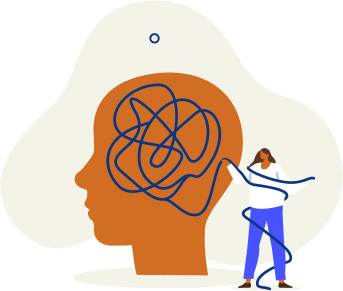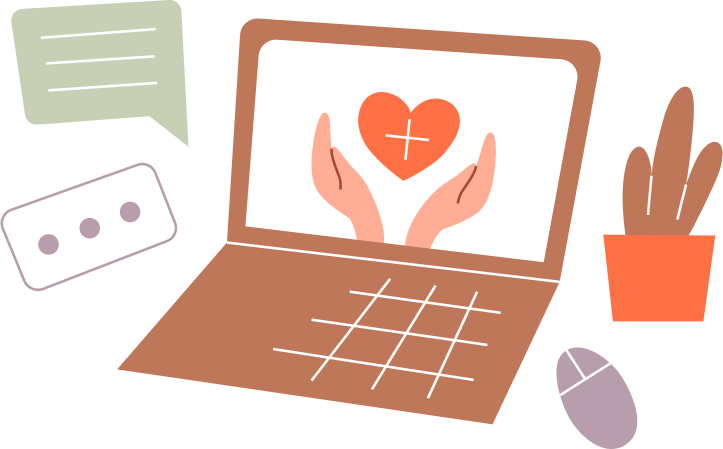Psychotherapy vs Coaching: Key differences and how to choose wisely

Understanding the Basics
Psychotherapy focuses on mental health problems and mental illness
Therapy is a clinical practice designed to assess, diagnose, and treat mental health disorders. It’s a journey into the past—a safe space where you can explore your experiences and emotions, heal old wounds, and gain a deeper understanding of who you are. Think of therapy as unearthing the hidden treasures of your soul, giving them the light they need to shine and heal.
Psychotherapists are trained and licensed professionals who use various therapeutic modalities to help individuals manage emotional difficulties. This process often involves exploring past experiences and current emotional states to provide relief from psychological distress.
Coaching focuses on achieving personal and professional goals
Coaching invites you to look toward the future. It’s a more practical and often faster-paced approach, akin to using a map with a set of tasks to complete. A coach acts as your guide, helping you chart a plan to reach your goals and unlock your full potential.
In essence, therapy is like a gardener nurturing your emotional well-being, while coaching is like an architect designing the structure of your future.
Key Differences in Approach and Training
Psychotherapists require more education and credentialing
Psychotherapists are licensed mental health professionals with advanced degrees. They must pass licensing boards and may hold credentials such as Licensed Clinical Social Workers (LCSWs). Their role involves diagnosing and treating mental health disorders.
Coaches may have varying levels of training and certification
Coaches are mental fitness professionals who use evidence-based methodologies to guide clients. While their training and certification levels vary, many complete specific programs. According to the International Coaching Federation (ICF), 99% of coaches report completing coach-specific training.
Choosing the Right Support for Your Needs
When to seek support for mental health issues
If you’re experiencing mental health challenges or suspect you may have a mental health disorder, therapy is often the better choice. Therapists can help individuals treat conditions like anxiety, depression, or trauma while developing coping strategies. Mental health issues are more common than many realize, affecting about one in four Americans at some point in their lifetimes.

When to seek support from a life coach
If you’re looking to achieve personal or professional growth, improve mental fitness, or set and achieve specific goals, a coach may be a better fit. Life coaches work with individuals to create strategies for stress management and achieving their ambitions.
Credentials and Regulation
How to check credentials for therapists and coaches
-
Therapists: Check for advanced degrees, state licensing, and professional affiliations. Therapists are equipped to assess, diagnose, and treat mental health disorders.
-
Coaches: Review their certifications and training programs. Coaches do not diagnose or treat mental health issues and should refer clients to mental health professionals when necessary.
Daily Functioning and Presenting Problems
Assessing your needs and goals
The ICF defines daily functioning as a wide range of activities related to personal self-care, work, and leisure. Coaches tend to focus on individuals already functioning well, helping them optimize their performance and overcome challenges. Therapists, however, are equipped to support individuals whose daily functioning is impaired by mental health issues.
Relationship Coaching and Personal Development
The role of a relationship coach
A relationship coach focuses on improving interpersonal relationships, whether romantic, familial, or professional. They help clients build communication skills, resolve conflicts, and strengthen connections. Unlike therapists, relationship coaches typically do not address deep-seated emotional trauma but focus on actionable strategies for enhancing relationships.
Personal development through coaching
Coaching can be an excellent tool for fostering self-awareness, building resilience, and achieving personal goals. Coaches empower clients to break through limiting beliefs and design fulfilling lives.
Common Mental Health Problems and Therapy
Therapists frequently work with individuals facing issues like anxiety, depression, trauma, or stress. By addressing the root causes of these challenges, therapy provides a foundation for long-term emotional well-being.
What to Ask a Therapist or Coach
Key questions to ask when seeking support
-
What approaches or models do you use?
-
What scientific research supports your methods?
-
How were you trained in them?
-
What is your goal for me as a client?

Choosing Wisely Between Psychotherapy and Coaching
If you need help with a suspected mental health disorder, require a diagnosis or treatment, or want to explore deeper emotional issues, therapy is the best choice.
If you’re ready to focus on future goals with the right support and accountability, coaching might be the better option.
Both therapy and coaching are powerful tools for personal growth. Understanding their differences will help you choose the path that leads to a fuller, more satisfying life.
Omar Rahman
Tags:





